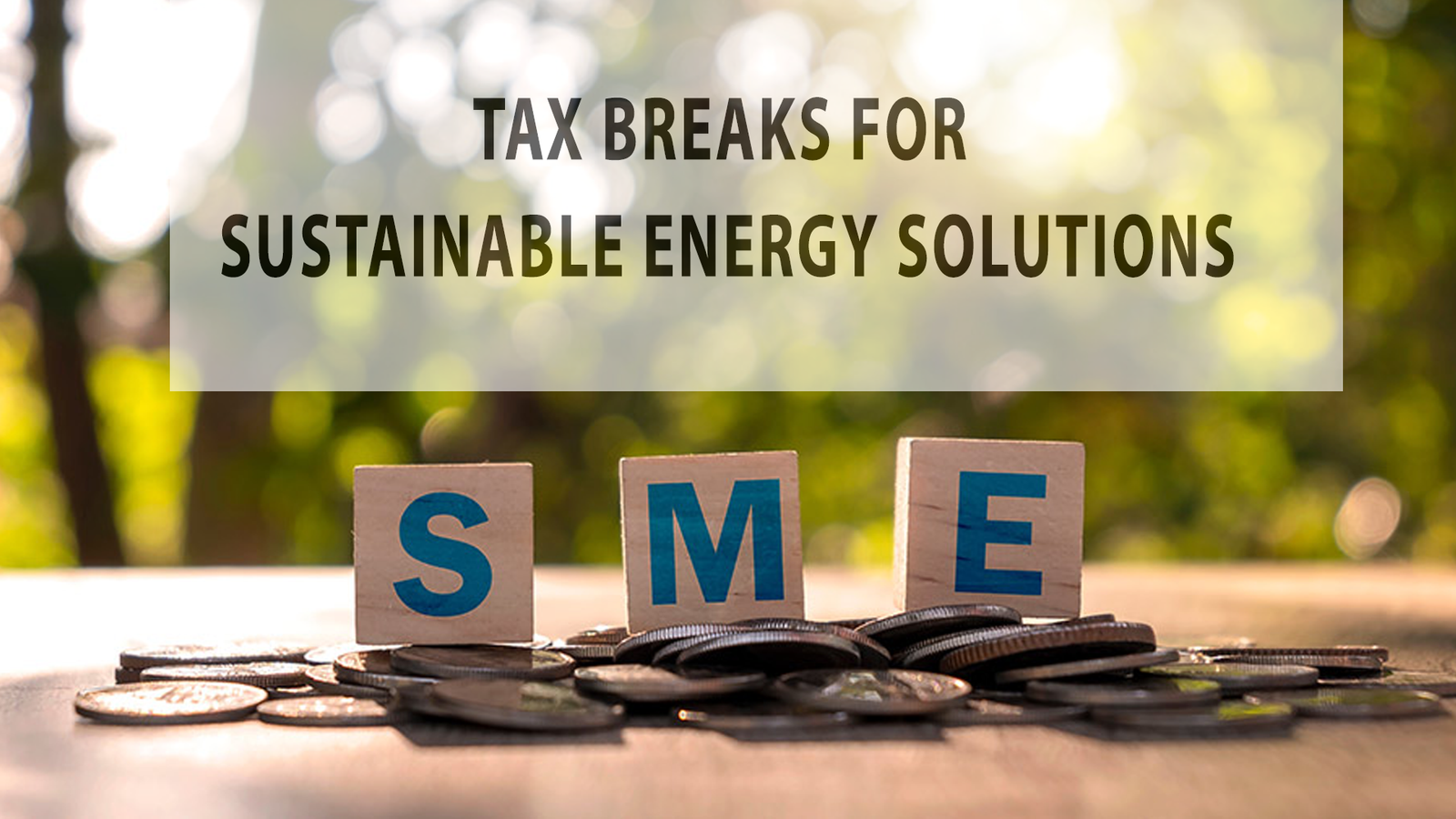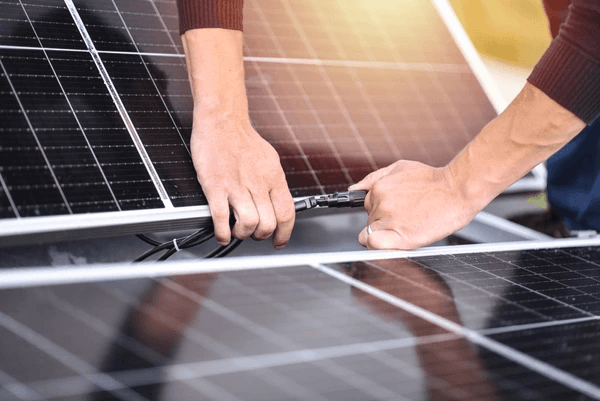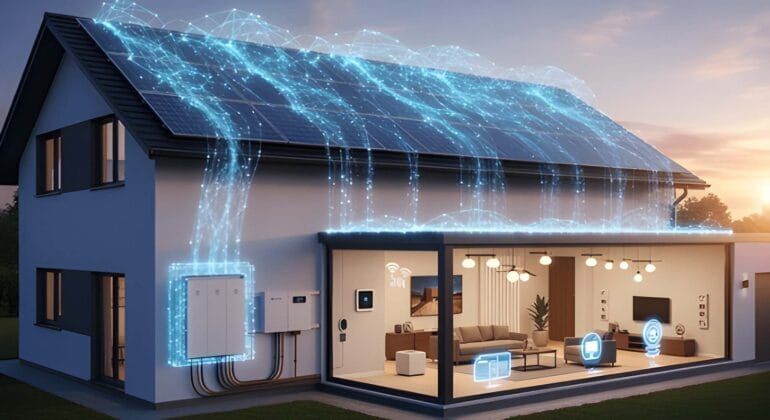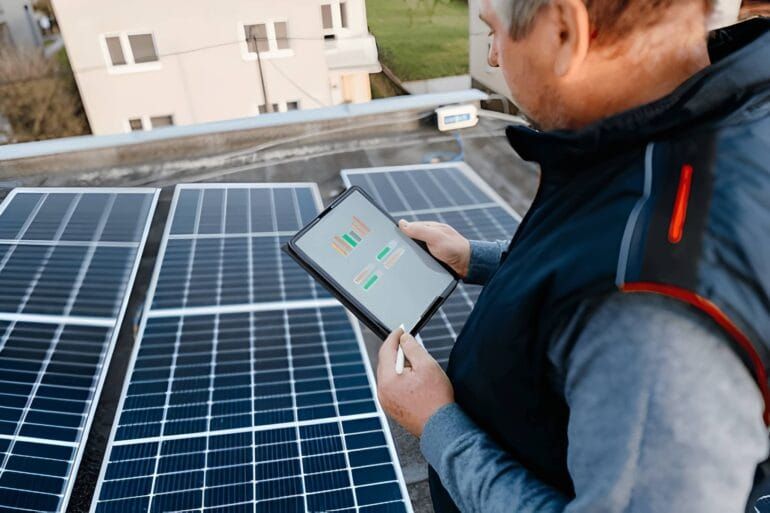I see a happy day for small and medium-sized enterprises (SMEs)! The Australian government has announced a groundbreaking new policy that will incentivize SMEs Tax Breaks for Sustainable Energy solutions. With up to $20,000 in tax breaks available, businesses can take advantage of this exciting opportunity to reduce their carbon footprint, while simultaneously improving their bottom line.
Small and medium-sized enterprises (SMEs) in Australia have a reason to celebrate as the government introduces tax breaks to incentivize the adoption of sustainable energy practices. Under the new scheme, eligible SMEs can claim tax deductions of up to $20,000 for investing in renewable energy systems and energy-efficient technologies. This initiative aims to support businesses in reducing their carbon footprint, lowering energy costs, and contributing to a more sustainable future.
SMEs Tax Breaks for Sustainable Energy Solutions
Under the new Small Business Energy Incentive, businesses with a turnover of up to $50 million will receive a bonus 20% tax deduction on electrical devices, such as batteries and heat pumps, when they invest up to $100,000 to replace fossil fuel energy sources.
This means that SMEs across the country can now electrify their operations, installing solar panels, heat pumps, and induction cooktops, without breaking the bank.
But this policy is about much more than just financial savings. As Energy Minister Chris Bowen notes, it will help reduce the business economy’s reliance on fossil fuel prices, promoting greater resilience in the face of market volatility.

And let’s not forget about the impact on our environment. By embracing sustainable energy solutions, SMEs can help create a better future for our planet, reducing carbon emissions and combating climate change.

Notes, swapping out polluting energy sources for renewable-powered electric versions “embeds thousands of dollars worth of annual savings into the annual operations of small businesses, savings that accrue over the long term.” It’s a new era of abundance and stability for Australian small businesses, as they lead the way in the transition to a cleaner, more sustainable energy future.
And the benefits don’t stop there. As Smart Energy Council chief executive John Grimes points out, this tax break could even serve as a cost of living measure for customers, as cheaper energy costs are passed on.
Of course, not everyone is on board with the electrification of homes and businesses. Some argue that the costs are simply too high. But as ACT independent Senator David Pocock notes, electrification is actually the “least costly option” for decarbonisation. And with the enormous benefits of sustainable energy solutions, it’s clear that SMEs should not be deterred by the naysayers.
Benefits for SMEs
The tax breaks for sustainable energy provide SMEs with significant advantages. Here are some key benefits:
- Financial Savings: By investing in renewable energy systems and energy-efficient technologies, SMEs can reduce their dependence on traditional energy sources and lower their energy bills. The tax breaks allow businesses to recoup a portion of their investment, making sustainable energy solutions more financially feasible.
- Enhanced Competitiveness: Adopting sustainable energy practices can give SMEs a competitive edge in the market. Customers and stakeholders are increasingly valuing businesses that prioritize environmental sustainability. By showcasing their commitment to sustainable energy, SMEs can attract eco-conscious consumers, differentiate themselves from competitors, and enhance their brand image.
- Long-Term Cost Stability: Renewable energy systems, such as solar panels or wind turbines, provide a stable and predictable source of energy. By generating their electricity, SMEs can mitigate the risks associated with fluctuating energy prices and volatile markets. This offers long-term cost stability and enhances financial planning for business operations.
- Environmental Responsibility: Embracing sustainable energy demonstrates SMEs’ commitment to environmental responsibility. By reducing their carbon emissions and environmental impact, businesses contribute to mitigating climate change and preserving natural resources. This not only benefits the planet but also aligns with the values and expectations of environmentally conscious consumers.
Eligibility and Application Process
To qualify for the tax breaks, SMEs need to meet certain criteria set by the government. While specific requirements may vary, here are some general considerations:
- Business Size: The tax breaks are primarily aimed at small and medium-sized enterprises. The definition of an SME may vary based on factors such as annual turnover, employee count, or asset value. It is important to review the guidelines provided by the government or consult with a tax professional to determine eligibility based on your business size.
- Renewable Energy Investments: SMEs must make investments in renewable energy systems or energy-efficient technologies that are eligible under the scheme. This can include solar panels, wind turbines, energy-efficient appliances, lighting upgrades, insulation improvements, or other approved sustainable energy solutions.
- Documentation and Reporting: SMEs will be required to provide documentation and evidence of their sustainable energy investments. This may include invoices, receipts, project details, and any other supporting documentation. Maintaining accurate records is essential for claiming tax deductions.
It is advisable to consult with a tax professional or seek guidance from the government’s relevant departments to understand the specific eligibility criteria and application process for the tax breaks.
Seizing the Opportunity
For SMEs in Australia, the introduction of tax breaks for sustainable energy presents a unique opportunity to invest in environmentally friendly practices while benefiting from financial incentives. By seizing this opportunity, SMEs can contribute to the transition towards a low-carbon economy and position themselves as leaders in sustainability. It is crucial for businesses to assess their energy needs, explore suitable sustainable energy options, and take advantage of the available tax breaks to maximize the benefits for their operations and the environment.
Additional Information for SMEs
In addition to the tax breaks for sustainable energy, SMEs can further benefit from various support mechanisms and resources available. Here are some key points to consider:
- Government Grants and Funding: Besides tax incentives, the government offers grants and funding programs specifically designed to support SMEs in adopting sustainable energy practices. These financial resources can assist in covering the upfront costs associated with implementing renewable energy systems and energy-efficient technologies. It’s worth exploring the available grants and funding options to maximize the financial assistance for your business.
- Energy Audits and Efficiency Programs: Conducting energy audits can help SMEs identify areas of improvement and optimize their energy consumption. Many organizations, including government agencies and energy service providers, offer energy audit programs and initiatives tailored for SMEs. These programs provide valuable insights and recommendations to enhance energy efficiency, reduce waste, and ultimately lower energy costs.
- Industry Associations and Networks: Engaging with industry associations and networks focused on sustainability and renewable energy can provide SMEs with access to valuable resources, information, and networking opportunities. These platforms often offer educational resources, workshops, and events that can assist SMEs in navigating the sustainable energy landscape and staying up-to-date with industry trends and best practices.
- Collaboration and Knowledge Sharing: SMEs can leverage collaboration and knowledge sharing opportunities with other businesses and stakeholders to accelerate their sustainability journey. Participating in forums, workshops, or online communities dedicated to sustainable energy can foster collaboration, enabling SMEs to learn from each other’s experiences, share success stories, and collectively drive positive change.
- Continuous Improvement and Monitoring: Embracing sustainable energy practices is an ongoing process. SMEs should continually monitor their energy usage, evaluate the performance of their renewable energy systems, and explore additional opportunities for improvement. By tracking energy consumption patterns and adopting energy management strategies, businesses can identify further areas to optimize efficiency and reduce costs.
Remember, adopting sustainable energy practices is not only beneficial for the environment but also for long-term business success. It can enhance your brand reputation, attract environmentally conscious customers, and create a positive impact on the bottom line.
Embrace the Sustainable Energy Transformation
As an SME in Australia, the $20,000 tax breaks for sustainable energy provide a unique opportunity to transition towards a greener and more sustainable future. By capitalizing on these incentives, exploring available grants and funding, engaging with industry associations, and embracing knowledge sharing, your business can unlock the full potential of sustainable energy solutions.
Make a commitment to sustainability, reduce your carbon footprint, and position your SME as a leader in the clean energy transition. Embrace the tax breaks, leverage available resources, and collaborate with like-minded stakeholders to contribute to a more sustainable Australia while reaping the numerous benefits for your business.
The time is now to revolutionize your SME’s energy practices, embrace renewable energy, and unlock endless possibilities for a brighter and more sustainable future. Seize this opportunity and embark on a transformative journey towards sustainable energy.
Embrace the Benefits and Lead the Way
By embracing the tax breaks for sustainable energy and implementing renewable energy systems and energy-efficient technologies, your SME can reap significant benefits. Lower energy costs, enhanced competitiveness, environmental responsibility, and long-term stability are just a few advantages awaiting you.
Seize this opportunity to revolutionize your SME’s energy practices, contribute to a sustainable future, and position your business as a leader in the clean energy revolution. The $20,000 tax breaks, combined with the support and resources available, make this the perfect time to embark on your journey towards sustainable energy.
Unlock endless possibilities for your SME in 2023 and beyond. Embrace sustainable energy, reduce your environmental impact, and pave the way for a brighter, cleaner, and more prosperous future.
Conclusion: SMEs Tax Breaks for Sustainable Energy
In conclusion, the $20,000 tax breaks for SMEs investing in sustainable energy represent a significant step towards a greener and more sustainable future in Australia. By encouraging businesses to embrace renewable energy and energy-efficient technologies, the government aims to foster environmental responsibility, reduce carbon emissions, and support the growth of sustainable businesses. SMEs are now empowered to make impactful changes, reduce their environmental footprint, and reap the financial rewards of embracing sustainable energy practices. It’s a win-win situation that benefits both businesses and the planet.







